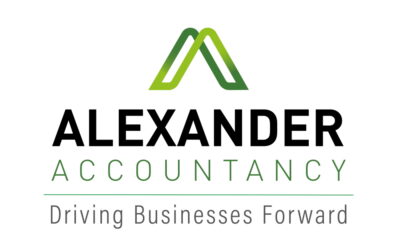
29th March 2023 Posted by - Alexander Accountancy
If you are thinking about buying crypto-assets (“crypto”) you need to know the basics and understand the risks before jumping in. And remember, if you decide to invest in crypto then you should be prepared to lose all the money you have invested.
The range and accessibility of crypto have grown rapidly in the last few years, accompanied by a surge in speculative trading – which means people trading just because they have heard it may rise in value, rather than seeing evidence to support a potential rise. A number of people invest simply for fun!
Crypto can be thought of as ‘digital representations of value or rights’ that are secured by encryption and typically use some type of ‘distributed ledger technology’ (DLT). DLT allows data to be recorded and stored across a network of participants. This keeps the data secure and means there is no one single central data storage point or one central authority that grants participants permission to access and participate in the network.
The way some cryptoassets are created and operated makes them very different from what some people would class as ‘tangible’ assets (meaning things that you can physically see and touch) like gold or cash. So called ‘unbacked’ crypto have no tangible assets that sit behind them. Their price can increase or decrease depending on whether other people are willing to buy them. If people stop buying, the price could fall dramatically.
Whereas central banks – like the Bank of England – issue and oversee the money we use daily (fiat currencies), cryptoassets are developed and run by groups, individuals, or companies. Publicly available information about some of these groups/individuals can be vague, and as crypto activity is not regulated yet in the UK, there is no safety net if things go wrong.
Currently, using crypto as a means of payment is very limited – they’re accepted by certain IT and travel companies, for example, but you probably won’t be doing your weekly shop or paying your 5-a-side football subs with crypto. The reason for this is that cryptoassets tend to be very volatile, so it’s hard to pinpoint their value from one day to the next, which makes them unreliable as a payment method. However crypto that are are linked to fiat currency can be less volatile and more stable and have the potential to provide faster, cheaper and more efficient payments in the future. Some investors take the view that crypto could possibly one day be accepted in everyday transactions but this is some way off.
Investing in crypto comes with all kinds of risks, some of which you might not even have thought of. For example, converting crypto to fiat currency can prove challenging and holders must keep a record of their digital keys. Capital gains tax can apply to exchanges and other disposals of crypto, even if fiat currency has not been realised. In 2022, crypto lender, Celsius, filed for bankruptcy and owed its users $4.7 billion, meaning many investors could not get their money out and did not get anything back.
Following the surge in people’s interest in crypto over the last few years, scammers have been increasingly active in targeting potential investors. Remember – if something sounds too good to be true then it probably is. Find out how to protect yourself and others from investment scams on the ScamSmart site.
If you are trading in crypto be aware HMRC expects you to keep detailed and accurate records of your purchases and sales. In 2021 they published their internal Cryptoassets Manual which outlines how they measure any profit or loss on trading and details the records required. You can see this here: Cryptoassets Manual – HMRC internal manual – GOV.UK (www.gov.uk). It has just been announced in Budget 2023 that new boxes will appear on the self-assessment tax return to prompt crypto disclosures next year.
Anyone trading in Crypto needs to be aware of their tax obligations and when transactions need to be included in their tax return. Please make sure you tell us about any transactions (even if fiat currency has not been received) so that we can assist and include the appropriate amounts in your self-assessment tax return, as required.
